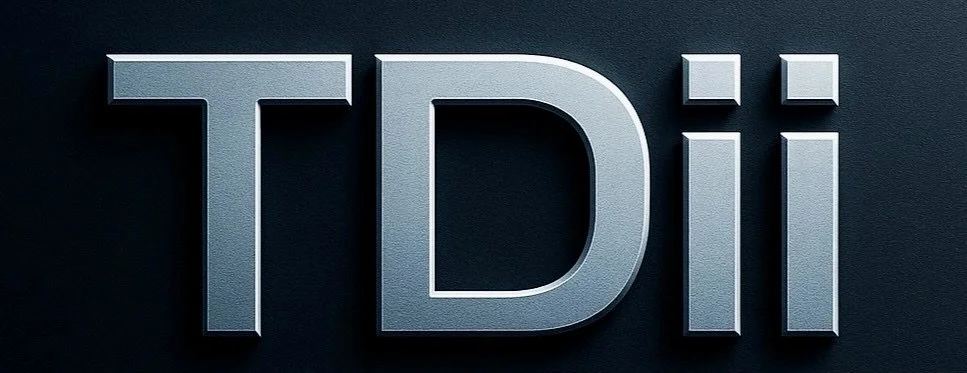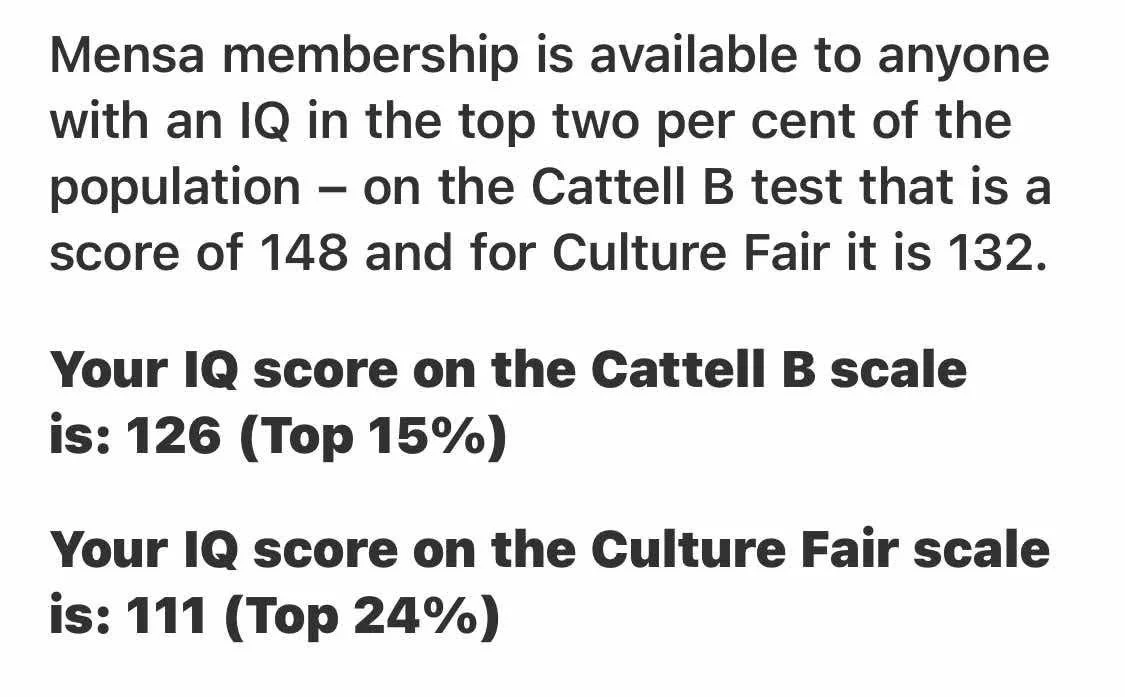WHAT IS INTELLIGENCE? AI OR NOT?
Originally posted on LinkedIn - August 14, 2025
In the past 4 weeks, since I was notified of my redundancy. I have been on a journey of understandable self-discovery and reassessment.
Situations like this are always a blow to the ego. Irrespective of the business rationale, kindness and offers of support. You inevitably look inward.
I am someone who honestly loves tests.. I love the challenge and the self-appraisal. I love knowledge and am eager to learn about anything that captures my interest.
If I fail tests, I regroup and resit. If I succeed, I love the validation of studying paying off, and this wasn't always the case for me, and something that kicked in during my professional career. This grew out of resilience and tenacity.
I often empathise with the character of Scotty from Star Trek, who reads technical journals in his downtime for fun, much to the bemusement of his colleagues off to a party.
Knowledge and self-development done correctly is pure joy.
I always considered work-related exams and tests as a busman's holiday. Getting paid to learn, it doesn't get much better than that, and to have a qualification at the end of it.
I am also aware that I am promoting my observations and opinion pieces as Intelligence and Insight. The insight is evident, but how are you classifying your intelligence, Mr Davies?
I've very recently had a brush with a situation where an AI note taker on my laptop prevented me from delivering a TEAMS presentation for an interview. Whilst this app was completely irrelevant to the session. I use it for documenting conversations and meetings, as frankly, my handwriting is illegible. Colleagues over the years have always commented on my doctor's writing. Yet, the fear factor of AI seems to be so great that, whilst a few clicks would have removed the offending app, I have now had to escalate the conversation to be able to present what I originally intended. A misunderstanding that I hope to clear up very shortly.
Yet, without anything to gain from having a note taker in an interview situation.. let's take a deep dive into AI over human intelligence..
What Is Intelligence? A Human and Machine Perspective
Intelligence is one of those concepts we all think we understand—until we try to define it. Is it the ability to recall facts? To solve problems? To adapt quickly to new situations? Or is it something far deeper—an interplay between knowledge, creativity, emotional awareness, and judgment?
For centuries, philosophers, scientists, and psychologists have debated what it truly means to be “intelligent.” Traditional definitions focus on reasoning, problem-solving, learning, and adapting to change. IQ tests, academic achievements, and professional qualifications have long been used as proxies for intelligence. Yet these measures, while useful, only capture fragments of the bigger picture.
The Many Facets of Intelligence
Modern research recognises that intelligence isn’t a single quality but a constellation of abilities:
Analytical Intelligence – The capacity to reason, evaluate, and think critically.
Creative Intelligence – The ability to generate original ideas, innovate, and connect seemingly unrelated concepts.
Practical Intelligence – Street smarts: applying knowledge effectively in real-world situations.
Emotional Intelligence – Understanding, managing, and influencing emotions—both our own and those of others.
Social Intelligence – Navigating complex interpersonal dynamics with tact and empathy. Ironically, something that has become a common trope for people in the highest intelligence bracket. We just have to see The Big Bang Theory TV series and the antics of Sheldon Cooper to appreciate that, but I feel that's a misnomer. High intelligence doesn't automatically equate to being socially awkward. That's a conversation for another article.
These dimensions suggest that intelligence is as much about how we engage with people and adapt to the unexpected as it is about what we know.
Where does AI come in then?
The 21st century has introduced a new friend to the conversation—artificial intelligence. We know that AI systems can process vast amounts of data, recognise patterns, and perform tasks once thought exclusive to humans. But does this mean they are “intelligent” in the human sense?
Not quite. AI can learn, but it lacks self-awareness, ethical reasoning, and emotional context. It can “decide,” but it doesn’t truly understand.
And yes.. it 'can' and has gotten it very wrong.
This distinction matters because it forces us to ask a deeper question: if machines can perform many of the tasks we once equated with intelligence, perhaps our definition needs to evolve.
Rethinking Intelligence in the Modern Age
In both human and machine contexts, intelligence should perhaps be defined not by the possession of knowledge alone, but by the application of that knowledge—wisely, ethically, and adaptively. True intelligence isn’t just about knowing the answer; it’s about knowing what to do next, especially in uncertain or complex situations.
HUMAN INTELLIGENCE AS THE ULTIMATE ARBITRATOR OF AI USE
(and always should be)
For individuals, this might mean continuous learning, developing emotional and social awareness, and staying adaptable in a changing world. For organisations, it’s about recognising that the most valuable intelligence blends human judgment with the computational power of AI.
The Takeaway In the end, intelligence—whether human or artificial—isn’t static. It’s fluid, contextual, and ever-changing. And perhaps the most intelligent thing we can do is keep questioning what intelligence means.
So, what about Mr Davies here.. Well, my family considered me gifted as a child, and there were conversations at that time about Mensa tests and the like.
Academia was of limited interest to me as a child. I lived in the trees and rivers around Llandovery. Yet, I loved books, I am a voracious reader, and a popular family story is me as a 4-year-old reading out the Radio Times to tell the family what was on the box that evening.
Secondary school.. GCSE's were average.. B1 stream.. Yet, teachers could see that there was more going on than this little lad who was off in the clouds. I have been told that since as an adult by the very same teachers.
I was asked by a client once in a challenging discussion..
What makes you qualified?
Without showing them your LinkedIn page.. There is no easy way to answer that. So I fell back on a snapshot of my 30yr history.. Experience and qualifications relevant to the conversation.
Wouldn't it be lovely just to have a magic statement for those conversations?
Besides my self-development background in project management, including AGILE, SCRUM and ITIL.. and professional qualifications, 30+ years of experience and even generic academia such as my BA (Hons).
What else is there?
I have already talked about my time on The Weakest Link. Close but no cigar.
Down to the last two, I kissed Anne Robinson, a cheque for my taxi fare, a Weakest Link pen, a cheeky look around Pinewood Studios (the home of my beloved Bond series and numerous other classics) and a very hazy post drinks with the winner train trip home to Wales where my then girlfriend angrily picked me up from Newport as the trains stopped there and not onward to Cardiff.
You can see the whole episode here:
https://www.dailymotion.com/video/x7yumry
Well, game shows are one thing. Is that really any proof of intelligence, unless you do a show like Mastermind or The Krypton Factor?
So what is the gold standard for intelligence assessments?
MENSA
So that's exactly what I did.. Last weekend, I had a very enjoyable morning at Cardiff's Clayton Hotel, where I completed 2 invigilated tests, and I had the results back this morning.
Whilst not quite in the 2% for Mensa. I feel a strong sense of validation from these results.
The official metric is 'above average or bright'. I can live with that.
Whilst not a Genius result.. I will take above-average intelligence and run with it.
So much so, I won't have to change the title of my articles anytime soon.
Besides my continued study.. This will have to be enough until Gordon Burns returns with a new series of The Krypton Factor.
Question for You: What’s your definition of intelligence, and how do you see it changing in the age of AI? What steps do we need to take to ensure that our intellectual prowess is evident while using AI to avoid accusations of abusing the technology?
#Intelligence #AI #EmotionalIntelligence #Leadership #Learning #Innovation #DigitalTransformation #FutureOfWork #kryptonfactor #theweakestlink #annerobinson #gordonburns #mensa


